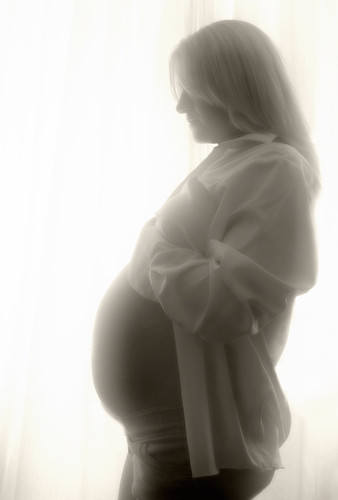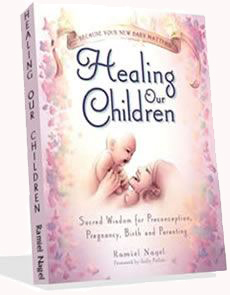Fat Soluble Vitamins You Need During Pregnancy
 There are many vitamins that are an essential part of a healthy pregnancy diet, and fat soluble vitamins should be at the top of the list, including vitamins A, D, and E. The best pregnancy diet, doesn’t suggest taking supplements or a pill to get these essential vitamins. Instead, a healthy pregnancy diet, as taught in Healing Our Children, should supply these vitamins through healthy food sources. Pregnant and nursing mothers who are actually eating healthy foods (instead of taking a supplement) will get better nutrition, which will allow their bodies to react to the available vitamins in a more positive manner.
There are many vitamins that are an essential part of a healthy pregnancy diet, and fat soluble vitamins should be at the top of the list, including vitamins A, D, and E. The best pregnancy diet, doesn’t suggest taking supplements or a pill to get these essential vitamins. Instead, a healthy pregnancy diet, as taught in Healing Our Children, should supply these vitamins through healthy food sources. Pregnant and nursing mothers who are actually eating healthy foods (instead of taking a supplement) will get better nutrition, which will allow their bodies to react to the available vitamins in a more positive manner.
But the main question is: how do you have a natural pregnancy and get these fat soluble vitamins with food sources? And many mothers also wonder why these three fat soluble vitamins are so important during pregnancy, how do they affect your growing baby? Here is an overview of these important vitamins, and why you need them during pregnancy:
Vitamin A: Is it a Bad or Good Pregnancy Vitamin?
In recent years, the news has numerous stories about about Vitamin A overdoses how dangerous they may be for developing babies. The truth is that there was only a single study which showed a correlation between increased Vitamin A and an increase in the risk of birth defects. In fact, there are other studies which suggest that that even up to 40,000 IU of Vitamin A per day has no dangerous affect on the risk of birth defects. The main point to consider is the source of Vitamin A. If the Vitamin A is coming from healthy sources such as animals, and you are being wise with your food choices during your healthy pregnancy diet, then there is no need to worry about Vitamin A causing negative side effects.
There are farmed or synthetic supplements of Vitamin A, which can be dangerous. But, don’t be tricked into thinking that you need to rely on them in order to have healthy, adequate levels of this essential fat soluble vitamin. Instead of using symthetic supplements, a better option is to use cod liver oil or animal livers as a source of Vitamin A, because these sources often store it in high quantities. Another source of Vitamin A is from provitamin A, found in dark green, orange, red, and yellow fruits and vegetables. However, if you use a plant source of Vitamin A it’s important that it is in your body along with fat, so it’s also essential to get sufficient amounts of fat in your pregnancy diet.
Vitamin D: Sunlight and Food Sources During Pregnancy
We know that sun exposure on the skin can cause Vitamin D to be synthesized in the human body, but do you know that it is possible to get this vitamin thru diet- especially in locations where sunlight is hard to come by? This vitamin is an important nutrient during pregnancy and lactation, because it is suspected to help a baby’s bones and organs to develop properly. Additionally, if a mother is lacking in Vitamin D, then they are more likely to experience symptoms of depression both before and after the birth.
Keep in mind that it is not necessary to depend on supplements or pasteurized, fortified dairy products to get Vitamin D during pregnancy. Instead, there are certain food sources that provide this fat soluble vitamin, such as oily fish, shellfish, animal organs, eggs, small animals and insects. Milk products are another good source, when the milk comes from cows, camels, musk oxen, and sheep. One organ that is particularly high in Vitamin D is liver, and if you add these foods into a daily pregnancy diet, then you will have the peace of mind that you and your baby are getting sufficient amounts of this important nutrient.
Vitamin E: Improved Reproductive Health
According to Healing Our Children, the scientific name for Vitamin E – tocopherol – means “to bring forth a child” in Greek. Vitamin E is an important nutrient for maintaining fertility in a woman, and it is essential both before pregnancy and while she is carrying the child. If Vitamin E deficiencies are present, then it can cause and many other problems. So, be sure you’re getting enough of this fat soluble vitamin throughout pregnancy.
Native populations throughout the world usually have some form of grain in their healthy diet. However, the grain is usually ground fresh, and it is left whole, so the Vitamin E in the fresh wheat germ is available through their food. Because our modern world is full of highly processed foods that contain wheat products stripped of nutrition, Vitamin E is more difficult to obtain through diet. The most efficient way to include it in your diet is by eating fermented or sprouted grains, as well as fresh butter.
When you get sufficient amounts of these fat soluble vitamins, it will help your pregnancy and your growing baby to be healthy and strong. You can access additional information about the foods that should be included in a healthy pregnancy diet, in the book Healing Our Children, which is filled with the information that you need to know about maintaining a healthy pregnancy and giving your baby a good start in life.
Photo Credit: The 5th Ape from







